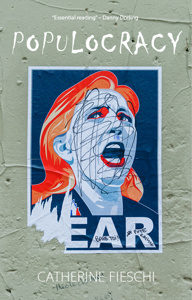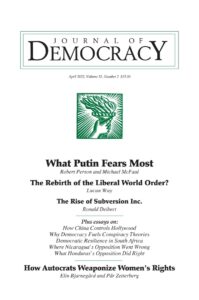 U.S. officials are anxiously watching the French presidential election, aware that the outcome of the vote on Sunday could reveal dangerous fissures in Western democracy, The New York Times reports:
U.S. officials are anxiously watching the French presidential election, aware that the outcome of the vote on Sunday could reveal dangerous fissures in Western democracy, The New York Times reports:
President Emmanuel Macron of France has been a crucial partner as Mr. Biden has rebuilt relations with Europe, promoted democracy and forged a coalition in response to Russia’s invasion of Ukraine. But Mr. Macron is in a tight contest with Marine Le Pen, a far-right challenger. ….For the Biden team, the fallout from a Le Pen victory would extend well beyond policies toward Russia and deal a blow to his project of bolstering democracy against authoritarianism worldwide….
“Biden sees this moment as a contest between democracy and autocracy,” said Daniel Baer, the acting director of the Europe program at the Carnegie Endowment for International Peace. “Over the longer term, certainly having one of the world’s most revered, advanced democracies elect an illiberal person would be a setback for the cause of democracy writ large.”
Russia’s war in Ukraine is the greatest threat to the transatlantic alliance in decades, and defeating Moscow is critical to protecting global security. It is also important for protecting liberal values and ideals. At a time when democratic institutions are under stress, a resounding win in Ukraine would be a victory for democracy over authoritarianism—a chance to revitalize liberalism, according to Alina Polyakova and John Herbst.
 As Biden said in his historic speech in Warsaw, the war in Ukraine is not just about Ukraine—it is a battle between democracy and autocracy. But the Western policy response has not reflected the gravity of these words. Instead, the United States and Europe have been overly cautious, contradictory, and riddled by fears that they will provoke a Russian escalation, they write for Foreign Affairs.
As Biden said in his historic speech in Warsaw, the war in Ukraine is not just about Ukraine—it is a battle between democracy and autocracy. But the Western policy response has not reflected the gravity of these words. Instead, the United States and Europe have been overly cautious, contradictory, and riddled by fears that they will provoke a Russian escalation, they write for Foreign Affairs.
History records that democracies like to wallow in neglect, but woe when they finally wake up, notes foreign policy expert Joseph Joffe. Britain slept; by 1940 it was a fight to the death. In World War I, it took Woodrow Wilson three years before he went after the Kaiser. FDR deployed America’s war machine against Hitler and Hirohito two years into World War II. In short, it takes a while for democracies to grasp the nettle; but once they do, fight they will, he writes for American Purpose:
 The celebrated US diplomat and architect of containment George F. Kennan compared democracies, especially the United States, with
The celebrated US diplomat and architect of containment George F. Kennan compared democracies, especially the United States, with
one of those prehistoric monsters with a body as long as this room and a brain the size of a pin: he lies there in his comfortable primeval mud and pays little attention to his environment; he is slow to wrath—in fact, you practically have to whack his tail off to make him aware that his interests are being disturbed.
But then it is fury unbound.
“To have a right-wing government come to power in France would be a political earthquake,” said Charles A. Kupchan, a professor at Georgetown who was the Europe director of the National Security Council during the Obama administration. “It would send a troubling signal about the overall political health of the Western world,” he told The Times:
Mr. Kupchan noted that the vigorous European response to Russia’s invasion of Ukraine had papered over simmering concerns in Washington about autocracy in countries like Poland and Hungary, whose right-wing prime minister, Viktor Orban, was comfortably re-elected last month.
Ukraine Can Win https://t.co/omUtQSkIZf via @ForeignAffairs
— Democracy Digest (@demdigest) April 22, 2022







